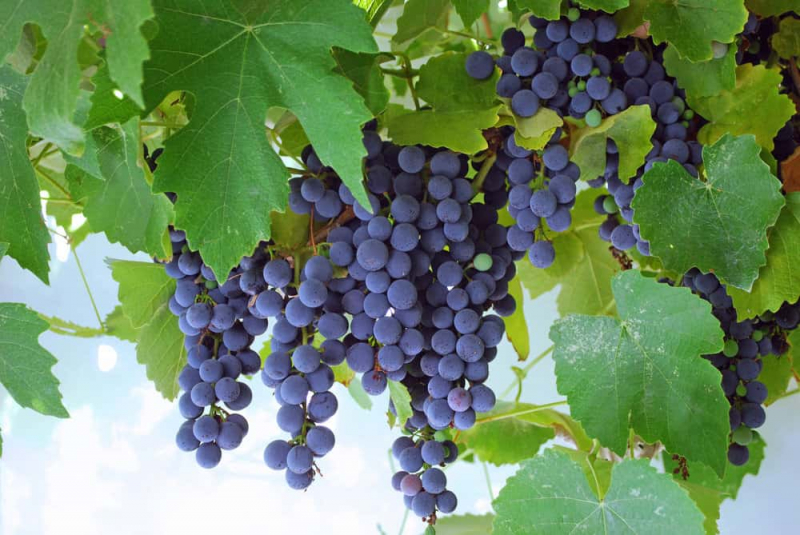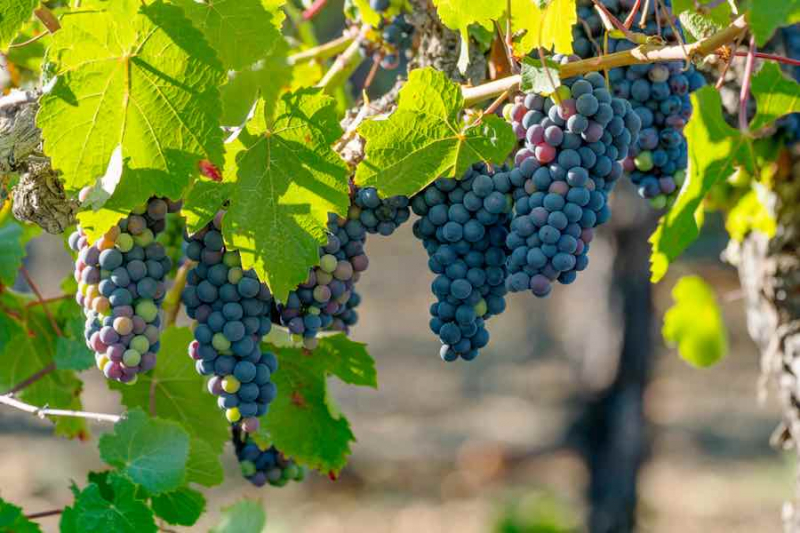Concord Grapes
The Concord grape is a cultivar derived from the grape species Vitis labrusca (also known as fox grape) that is used as table grapes, wine grapes, and juice grapes. They are frequently used to create confectionery, grape juice, jelly, pies, and soft beverages. The grape is occasionally used to manufacture wine, especially kosher wine for religious purposes. Concord grapes may boost immunity, mood, and brain health, though more studies are needed to confirm this. The Massachusetts town where it was created inspired the name of the grape.
A Concord grape's skin is normally deep blue or purple and frequently has a removable epicuticular wax "bloom" of a lighter hue. Because it is a slip-skin cultivar, the fruit's skin can be readily detached from it. Large and extremely scented seeds can be found in concord grapes. The physiological issue of the black spots is particularly prone to affect Concord grapes. In the United States, 417,800 tons were produced in 2011. The major growing areas are the Finger Lakes District of New York, Lake Erie, Lake Ontario, Southwestern Michigan, and the Yakima Valley in Washington. They are sometimes found growing wild.








